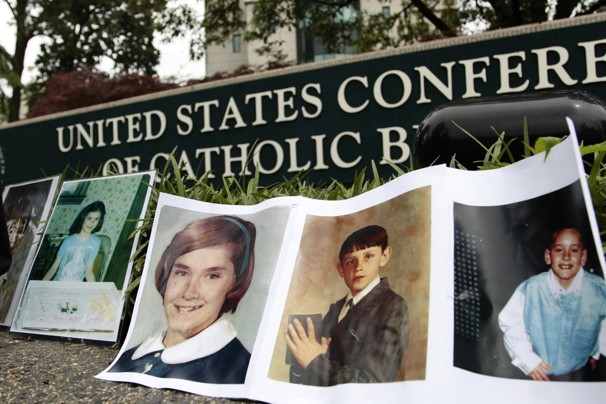How Churches Should Address Abuse
By Kristen Howerton
A recent lawsuit filed in October against church officials working for Sovereign Grace Ministries (SGM) raises many ethical questions about clergy and their duty to report sexual abuse within the church. SGM is a church network with member churches throughout the world and has engaged in partnerships with many prominent figures in the Reformed movement, including John MacArthur, Mark Dever, and John Piper. The lawsuit, filed by several women against SGM, alleges that church officials discouraged abuse victims from contacting the police, and instead conducted their own justice process, including forcing victims to meet with the men who assaulted them for “forgiveness.” The suit was originally filed by three women, but more plaintiffs have since been added, including plaintiffs that allege that some of the church officials were perpetrating the abuse as well. Unfortunately this isn’t the only sexual abuse case involving SGM. In February, a former leader at Maryland’s Covenant Life Church that formerly served as SGM’s flagship church was indicted on accusations of molesting four boys between 1985 and 1990. The church withdrew their association with SGM in December. SGM released a statement in which they suggested that courts should be prohibited from reviewing confidential advice given during pastoral counseling sessions, claiming it would impinge on the church’s First Amendment rights. “We are saddened that lawyers are now, in essence, seeking to violate those rights by asking judges and juries, years after such pastoral assistance was sought, to dictate what sort of biblical counsel they think should have been provided,” the statement said. The problem with SGM’s invocation of the First Amendment is that this protection applies to the separation of church and state, but not freedom from following the law. While it is true that pastors are free to give whatever kind of biblical counsel they see fit, nearly every state has laws that mandate ministers or other clergy members to report sexual abuse. Therapists, school-teachers, and doctors are similarly required to break confidentiality in such cases, and pastors and church leaders are bound by the same rules. There is no client/counselor privilege when it comes to child abuse. It’s one of the few situations where breaking confidentiality is not only accepted but required. Unfortunately, the number of churches that have failed to alert authorities are too numerous to mention. This pattern emerged within the Catholic Church, with leadership attempting to hide abuse charges from both the public and from legal entities. Sexual abuse cover-ups have occurred in nearly every religious institution, from protestant megachurches to Jewish religious schools to cloistered religious sects. Despite many documented cases of churches covering up abuse, there are also more encouraging cases in which the church operates with transparency. One example occurred 10 years ago at First EV Free Church in Fullerton, California when church officials reached out to authorities after a woman revealed in a counseling session that a church member had molested her as a child. A more recent example, and one that was personal for me, was at my own church. When Newport Beach police announced they had arrested a man on suspicion of sexually abusing two boys, Rock Harbor Church immediately went public with the fact that this man was a Sunday School teacher. While the initial allegations did not involve church members, the church contacted police, and also held a meeting for all congregants to alert church members to the potential risk and to encourage families to speak with their children. Sadly, after speaking with their children, two families from the congregation added allegations against the man. However, because of the church’s transparency, these children were able to disclose the abuse to their parents and get help, and the added allegations will provide more evidence for investigators in the case. It’s important to note that churches are not the only place where the tragedy of child sexual exploitation occurs. Unfortunately, pedophiles prey where they can gain access to children, and that includes schools, day care facilities and sports programs. What seems to be uniquely dangerous within the church, however, is a tendency to attempt to deal with the problem internally instead of involving legal authorities. Some pastors may feel that they can exact accountability and punishment within the church community. Unfortunately this practice in harmful in many ways. It shields perpetrators from facing legal consequences, and it also puts other children at risk since the perpetrators have no criminal record of their actions. My hope is that churches will begin to follow best practice when child abuse is suspected, which should involve: 1.Immediately calling Child Protective Services to report suspected neglect or abuse of a child. Proof is not required – that is the job of the investigator. 2.Providing referrals to qualified, licensed professionals who can provide professional counseling for victims of sexual abuse 3.Removing the perpetrator from leadership and being transparent with church members about what has occurred to avoid risk to other children. While churches are free to take disciplinary action or provide biblical counsel within the church body, this should always be second to notifying authorities. While the allegations against SGM are disturbing, my hope is that this situation can provoke a national conversation among religious leaders on the importance of transparency and legal accountability when sexual abuse has occurred in the context of the church.
|
.
Any original material on these pages is copyright © BishopAccountability.org 2004. Reproduce freely with attribution.
